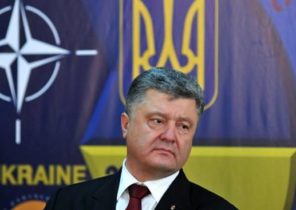
Judging by the behavior of President of the United States Donald trump since his election and his unequivocal isolationist message in his inauguration speech, it’s safe to assume that the foreign policy of his administration will overturn many long-held assumptions about the role of America in the world. This can be especially disturbing to the Asian allies of America.
It is too early to talk about what exactly it will mean the presidency trump for Asia. The range of possibilities is wide. Trump can deploy a strategic “pivot” of U.S. President Barack Obama to Asia, leaving the region in chaos. It can keep Asia in the field of view, but with a more military approach. Or he can unite with China to create a kind of G2 major world powers.
In any case, it seems clear that after decades of broad continuity with the moment when US President Richard Nixon and his national security Advisor Henry Kissinger in 1972, made his unexpected trip to China — the us policy toward China remains an open question. Countries that depend on security assurances from the United States to protect them — such as Japan, South Korea and Australia — are very concerned about.
Due to the deep and predictable political cooperation with the United States, many Asian countries are accustomed to the obligations of America to ensure their security. And, unlike the multilateral mechanisms for security, such as NATO, the Asian American alliances based on separate bilateral pacts. As a result, these countries are particularly vulnerable to the vicissitudes of trump.
Bilateral alliances maximize the control that great power may exert on smaller allies, while multilateral mechanisms to distribute power and influence more evenly. The way it works in Asia, where the US stand in the center of the fan system while other countries are United through this center. This structure, known as a star network, works well for coordination or resource accumulation.
As before the election, argued the political scientist Victor Cha, changes in regional opportunities, new threats and challenges, as well as the spread of communication in the twenty-first century, say a new, more multilateral security structure in Asia. Trump’s suspicions regarding multilateral institutions and his reluctance to assume the costs associated with beliefs, side payments, and with an organization that has centralized leadership requirements — makes this transition more urgent.
Instead of despair, the Asian allies of America should take the problem into their own hands and start to cooperate. Through the creation and institutionalization of relations between U.S. allies in Asia can change its regional security structure from a star where the center is United States, cellular models, in which they related to each other, as well as with the United States. Such a system may improve stability in this unstable time in three vital areas.
First, if the US does not justify adequately the implementation of its regional commitments — for example, participation in capacity-building with partners who confront the Chinese aggressive statements on territorial claims in the South China sea network cooperation can help allies to compensate. Japan, Australia and South Korea are already assisting in ensuring the security of the countries of South-East Asia on a bilateral basis. Multilateral coordination mechanism would allow these countries to coordinate their efforts, thereby increasing their capacity to advance their common interests in security, even if the resources and leadership of the United States are depleted.
Moreover, if the allies in Asia are skeptical of US intentions, network partnerships can give them the leverage to demand more transparency. The United States regularly discuss the sensitive issue of defence and human rights regarding North Korea, with its allies in Japan and South Korea, but with each separately. As a result, these countries remain dependent on the United States, in information terms, and in terms of features.
However, solving the problem with North Korea in a trilateral setting, South Korea and Japan could triangulate the information they receive from US and increase their participation in the formulation of the answer. Their recent agreement to share intelligence GSOMIA is a significant step to promote such transparency through the network.
Similarly, such a network approach could put Asian countries in a much stronger position to deter the United States, in the case that the administration trump will take in the region of destabilizing actions, for example, pumping up tensions with China. Trump already has questioned its commitment to the policy of “one China” — including the adoption of a telephone call of congratulations from Taiwan’s President, after the election — and threatened to impose high tariffs on China, which he accused (wrongly) in the devaluation of its currency to gain unfair trade advantage.
China said that if trump will follow that path, he will respond in kind. None of these solutions will benefit the allies of the United States.
Of course, if one of the relatively small America’s allies will attempt to confront the United States in their actions, he will face high costs and low chances of success. But, in case, if numerous allies have worked together in the framework of international institutions and multilateral dialogue, they would be able to convince the administration to trump to change course, without prejudice to its own vital interests.
The good news is that the Asian allies of America do not have to start from scratch. Over the past few years, some relationships emerged organically. Japan has concluded bilateral agreements in the field of economy and security with the Philippines and Australia. The Association of South-East Asia is not only a deeply networked organization; it is also actively developing relations with its neighbours in North East Asia through a number of bilateral and multilateral agreements.
The Obama administration recognized this trend. In 2016 she began promoting the idea of “fundamental of network security” in Asia is a slogan that is unlikely to survive the presidency, trump. Obama hosted a trilateral meeting with Japan and South Korea.
Mesh networks are quite stable because no single node is not critical to the survival of the structure — even if one link fails, the structure survives. Logic is used when designing everything from fences to fishing nets. It is time to apply it to the Asian measures to ensure security. If they have taken the appropriate measures, the Asian allies of America can emerge from the era of trump, more stable and safe than ever.







